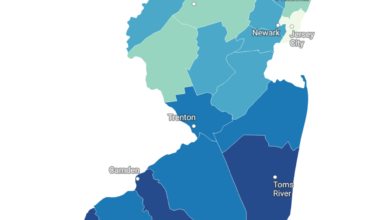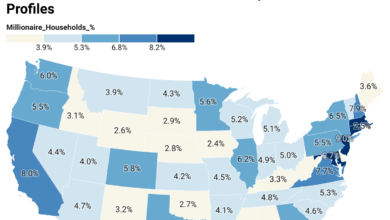The Role of Tips in Restaurant Workers’ Earnings, State by State

Restaurant workers, such as servers and bartenders, often depend on tips as a major part of their income.
This is due to the fact that workers who earn tips are subject to a much lower minimum wage than other employees. While the federal minimum wage is $7.15 per hour, employers are only required to pay tipped workers a base wage of $2.13 per hour.
Employers are required to cover the gap if tips don’t raise a worker’s hourly earnings to at least the minimum wage. On average, tips account for about 23% of restaurant workers’ total income nationwide, according to new data from Square.
As of September 2024, Square reports the average percentage of restaurant workers’ income that comes from tips in each U.S. state.:
Minimum wage laws vary by state, and five states — Alabama, Louisiana, Mississippi, South Carolina, and Tennessee — do not have a state minimum wage at all. In Georgia and Wyoming, the state minimum wage is below the federal minimum, so the federal rate applies to most workers in those states.
Given these wage structures, it’s no surprise that tips make up the largest portion of restaurant workers’ earnings in Wyoming, where tips account for an average of 33% of their income, according to data from Square.
In Wyoming, restaurant employees earn an average base wage of $11.09 per hour, supplemented by an average of $5.34 per hour in tips. As of 2024, customers in the state tip around 16% on average, slightly down from the previous year.
Only a few other states — South Dakota, Alaska, and Kansas — see tips make up at least 30% of restaurant workers’ income, although average hourly earnings in those states tend to be slightly higher than in Wyoming.
Tipping has sparked debate in recent years, with a recent Bankrate survey revealing that 35% of Americans believe tipping culture has gone too far.
Many consumers now feel pressure to tip more often, especially when prompted by digital checkout screens displaying preset amounts. While tipping at sit-down restaurants remains widely accepted, there’s less agreement on how—or whether—to tip for services like food delivery, hotel housekeeping, and rideshare rides.




